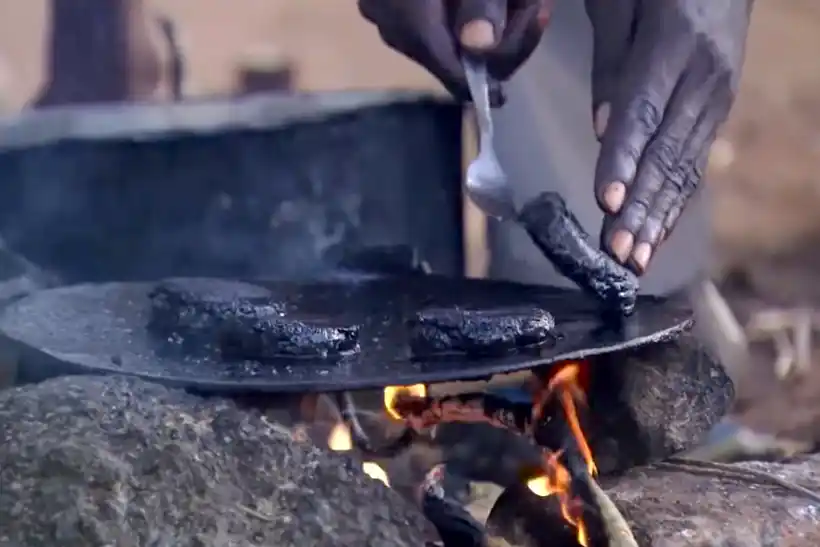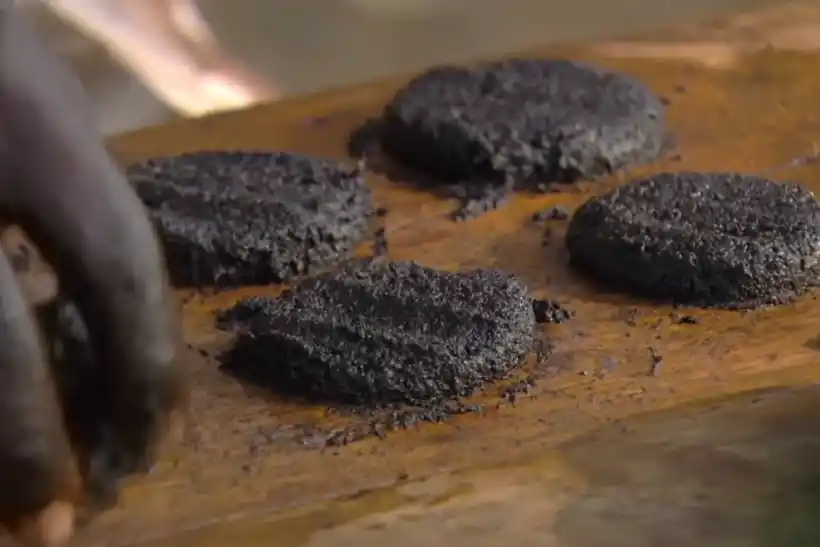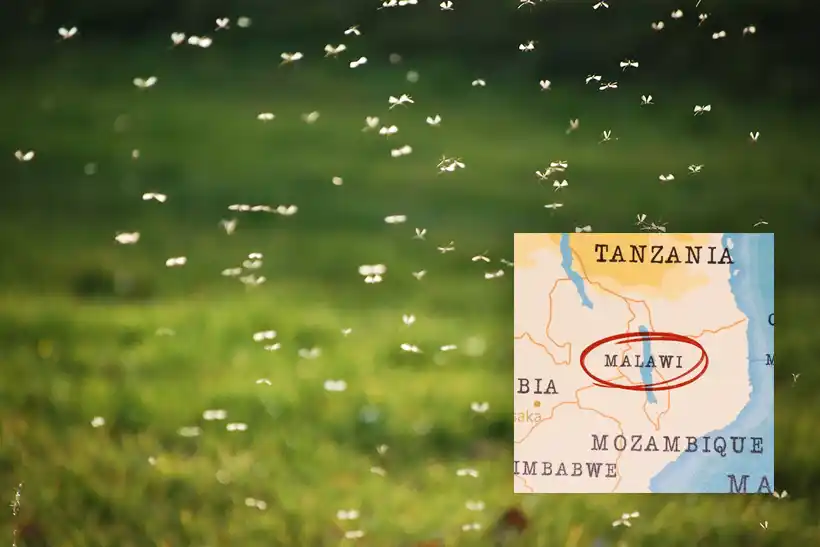
In the heart of the African Great Lakes region, where nature’s offerings become culinary marvels, a surprising delicacy awaits. Kunga Cake, made from swarms of midges or flies, is a testament to the resourcefulness of local populations. In his book “Insects: An Edible Field Guide” author Stefan Gates suggests that people can “make burgers with it,” introducing Mosquito Burgers as a unique and protein-packed creation derived from Kunga Cake in the local cuisine.
What is Kunga Cake?
Kunga Cake, also known as kungu, is a unique dish made by compressing swarms of midges, particularly Chaoborus edulis, into a dense cake. This unconventional dish, found primarily in countries surrounding Lake Malawi. Such as Tanzania, Malawi, and Mozambique. It’s not just a local curiosity; it’s a vital protein source for regional communities.
May Berenbaum, an American entomologist, highlights the significance of Kunga Cake. Swarms of midges, often a challenge for locals, are turned into an opportunity for sustenance. Locals catch the flies by coating a frying pan with cooking oil and wafting it through a swarm, capturing the insects.
Cultural Context
While Kunga Cake might seem unusual to some, the practice of consuming insects is not new. Cultures worldwide have embraced insect cuisine for centuries, from Thailand’s fried crickets to Mexico’s chapulines, offering a sustainable and protein-packed alternative.
The United Nations and the World Health Organization recognize the nutritional value of insects, providing protein, vitamins, and minerals. They contribute to global food security and sustainable food practices.
Mosquito Burgers: Cooking and Preparation

The preparation of Kunga Cake goes beyond catching midges. Stefan Gates, author of “Insects: An Edible Field Guide,” suggests various ways to incorporate Kunga Cake into meals. From making burgers to drying and grating it into stews for added umami richness, Kunga Cake offers a versatile addition to the culinary repertoire.
Adventurer Bear Grylls considers Kunga Cake a “great survival food,” emphasizing its potential as a nutrient-dense option in challenging environments. Even explorer David Livingstone, known for his African expeditions, likened the taste of Kunga Cake to caviar.
Unexpected Origins of Mosquito Burgers
During the rainy season, trillions of midges resembling mosquitoes emerge from Lake Malawi annually. These dense swarms, capable of suffocating a person, pose a unique challenge to the region.Locals, undeterred by the challenge, turn this annual dilemma into an opportunity for protein. Armed with pots and frying pans, entire communities engage in the hunt for midges.

With flies filling the air, catching them becomes a communal effort. Once gathered, the midges are prepared for consumption. When cooked properly, these tiny insects become a powerful source of protein. To prevent easy-to-catch protein from going to waste, locals initiated the tradition of making Mosquito Burgers.
In fact, these Mosquito Burgers boast seven times more protein than your typical beef patty. Communities creatively mash collected flies into patties, shaping each one to contain about 500,000 midges. This process exemplifies the resilience and ingenuity of these communities. In regions where protein is often scarce, Mosquito Burgers have become a godsend, proving to be lifesavers during times of famine.
A Culinary Tradition
Every village has its unique Mosquito Burger recipe, adding a touch of local flavor to this extraordinary dish. Whether pan-fried, grilled, or seasoned with local spices, these fly burgers are in high demand, going like hot cakes in every community.
As we delve deeper into Africa’s hidden menus, Mosquito Burgers, part of the Kunga Cake tradition, emerge as a testament to the ingenuity and resourcefulness of communities. Beyond the initial surprise, these burgers represent a sustainable and creative approach to nourishment in the face of nature’s annual insect symphony.
Venture into the world of Kunga Cake, where Mosquito Burgers become a gateway to tradition and sustainable nutrition. This African insect cuisine beckons the curious and adventurous, offering unexpected delights in every bite. Join the culinary exploration and savor the richness of Kunga Cake.
